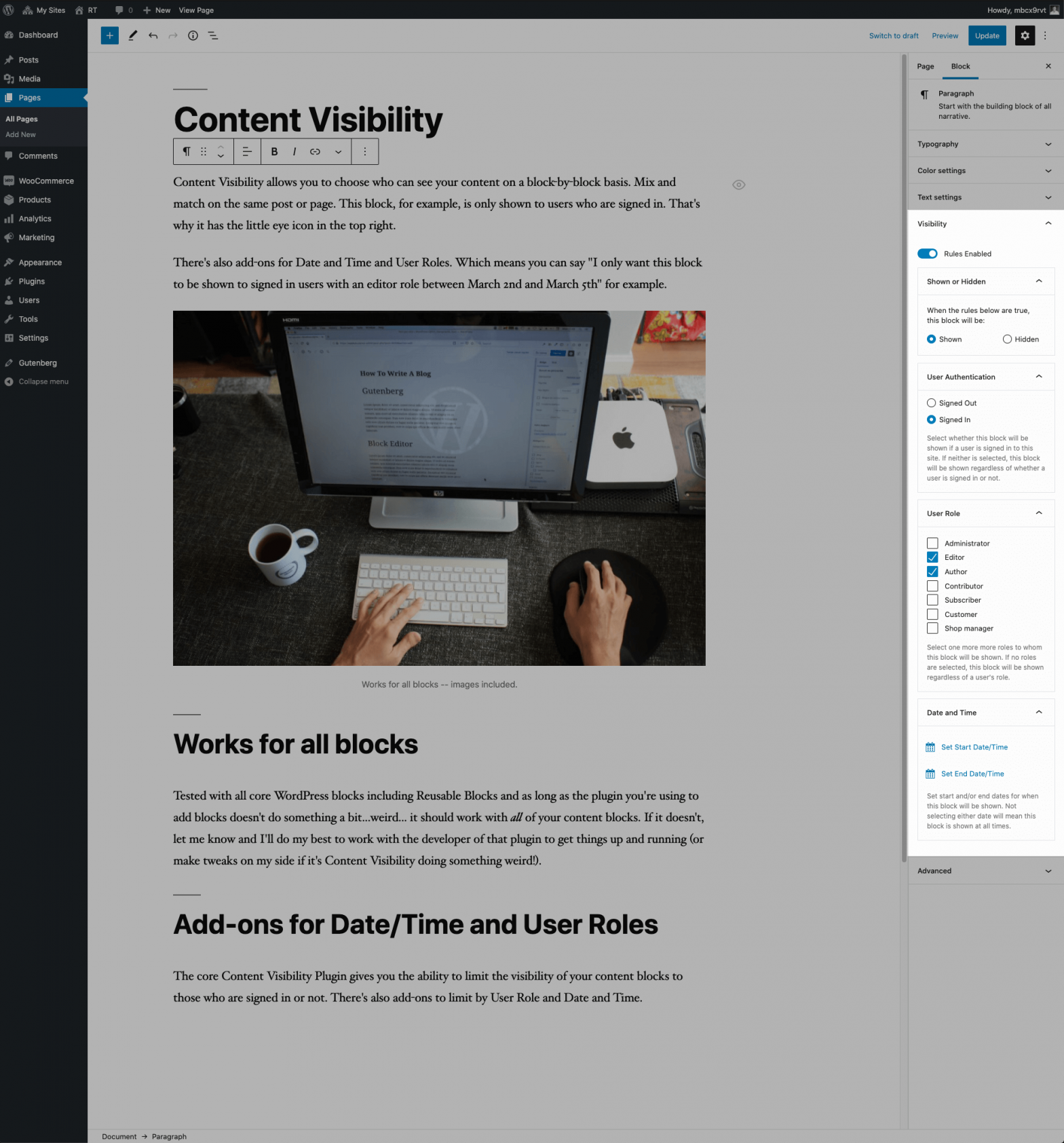With the new Gutenberg editor for WordPress (coming in 5.0), your content will be made up of blocks. Each paragraph, image, quote, heading (and a lot more) are all discrete pieces of information which Gutenberg calls blocks. WordPress natively has the ability to schedule an entire post for a specific future date and time (which… Continue reading Scheduled Blocks
Add a custom sidebar panel to Gutenberg
WordPress 5.0 will ship with a brand new content editor dubbed Gutenberg. It’s one of – if not the – largest changes to WordPress in the last… ever (?). With change comes anxiety and because this is the Internet, this particular change comes with opinions. Lots and lots of opinions. This post is going to… Continue reading Add a custom sidebar panel to Gutenberg
WordPress Page Templates in Plugins
This used to be a tricky problem to solve involving ‘fooling’ WordPress into loading the right template from its cache etc. However, for about 12 months now – since 4.7 – it’s relatively trivial to load a WordPress page template from a plugin. Here’s how: /** * Add the Page Template to the dropdown… Continue reading WordPress Page Templates in Plugins
WordPress shortcode API breaking changes in 4.2.3
This post is not the normal faire for this blog. Normal programming will return shortly (I had to create a new category called ‘Rants’ so that says a lot, I think). I’m frustrated. I am so conflicted with the shortcodes API change. I understand it’s a security fix, and that is the trump card. I’m… Continue reading WordPress shortcode API breaking changes in 4.2.3
Namespaces in WordPress development
As more and more developers come into the WordPress space (a truly wonderful thing) — many of whom transition from other ecosystems — I often hear or read about how antiquated those developers find WordPress coding practices. You don’t have autoloading? Or dependency management? Or… you get the idea. “Wait… you can’t even use Namespaces in WordPress… Continue reading Namespaces in WordPress development
From PHP-FPM to HHVM on Ubuntu
As a developer I enjoy using the latest and greatest…things. And, as a WordPress developer, I enjoy seeing how I can use the latest and greatest with the content management system I use on a day-to-day basis. Today I moved this very site from using PHP to HHVM. Here’s how.
Setting up WordPress on HHVM on Digital Ocean
Note: This is a long tutorial (Over 4500 words) on how to set up WordPress on HHVM deployed with Capistrano and Composer. The actual process took me about an hour from start to finish. I’ve tried to be as complete as I could, but please leave comments if you see anything wrong or things that… Continue reading Setting up WordPress on HHVM on Digital Ocean
Memcached for WordPress on Ubuntu 14.04
If you’re unsure of what an object cache is, or what memcached is, your first port of call should be Scotty’s article on the subject. WordPress has built-in support for a PHP object cache. However, it only exists temporarily – for a single page load. The best way to explain this is to think about… Continue reading Memcached for WordPress on Ubuntu 14.04
Composer packages and WPMU Plugins
I am by no means a composer expert. In fact it was something that Ale at Briteweb introduced me to a little over 9 months ago. So whilst the method that I’m describing below most definitely works – and is stable and solid – it is by no means the only, or indeed possibly best way to… Continue reading Composer packages and WPMU Plugins
Determine MySQL Database Size
When you work with fairly large databases, it’s often useful to know the size of one of them. For example, should you wish to take a full dump – you need to know if you have enough space on the drive you wish to keep it, and, in order to do that, you’ll need to… Continue reading Determine MySQL Database Size
